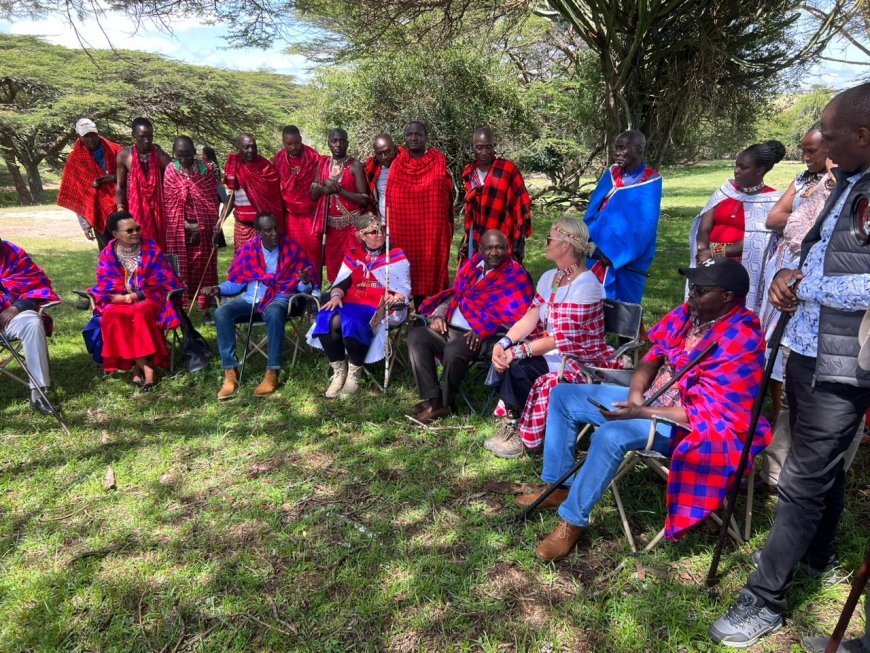Families in Loita receive 49 cows each from British Government

Narok, Friday June 30, 2023
KNA by Ann Salaton
Jubilation engulfed Morijo village in Loita ward, Narok South Sub County after the British government gave 98 cows to two families, Sulul and Mpaima as a way of compensating them for sacred objects taken from them during the colonial era.
The two families whose kin also lost their lives during the colonial period got 49 cows each.
Samuel Ole Nangiri, who led the negotiations between the Maa people and the British government said the process began in 2017, when Maa beads that are believed to be sacred were found in Pitt Rivers Museum at Oxford University in London.
Nyangiri said the beads are only handled by women who pass them on to their daughters during initiation ceremonies.
He explained that the beads are too sacred to be handled by any other person in the society, except the girls who hand them over to their siblings when they are undergoing the rite of passage.
However, Ole Nangiri said, the objects were found in the Museum, raising questions on how such objects found their way there, and who could be the original owner.
This invoked the intervention of Maasai Spiritual leader ‘Oloiboni’, who travelled to London to confirm whether the objects found originated from the Maa people and the families that they had been taken from.
The Olooiboni, only identified as Mukombo revealed that the ornaments were taken from Mpaima and Sulul families that live in Loita ward.
The spiritual leader also claimed that the women from which the objects were taken from were expectant when they were killed by the colonialists.
Following the event, the Maa people and the British government began the process of cleansing as it is believed that holding such sacred objects by unauthorized persons can lead to a curse.
“Our culture is very important and this occasion is evidence that the British government is remorseful of their deeds,” he said.
The cleansing ceremony involved the handing over of the 49 cows to each of the affected families, where the cows had to cross a river as evidence that they had crossed from one community to another.
The occasion was witnessed by Governor Patrick Ntutu, former governor Samuel Tunai, Narok South MP Kitilai Ole Ntutu, Emurua Dikirr MP Johana Ngeno and County Women Representative Rebecca Tonkei.
Director of the Pitt Rivers Museum Professor Laura Van Broekhoven, who led the team from London said the process of negotiation and cleansing began in 2017 after the ornaments were identified in her Museum.
She said several videos and consultation with elders proved that the objects originated from the Maa people living in Kenya.
“There were several object that were recognized by Mukombo (Olaibooni). He helped to identify the families which the objects originated from,” she said.
Governor Ntutu said the day was very important as it cemented friendship with the whites who had taken their sacred objects.
He said other three families, whose objects were found in London namely Sayialel, Naisho and Moseka will as well be compensated.
On his part, Tunai challenged young people to write books on the same so that the whole world can know that the Maa people were also involved in the fight for independence.
He said the ceremony is very important and asked the current leadership to continue pursuing other objects that could have been captured by the colonial government.
The Women Representative asked Oxford University to extend a branch of their university in the Maa land as a sign of good relations between Kenya and Britain.
Courtesy ; K. N. A
What's Your Reaction?


































































































































































































































































































